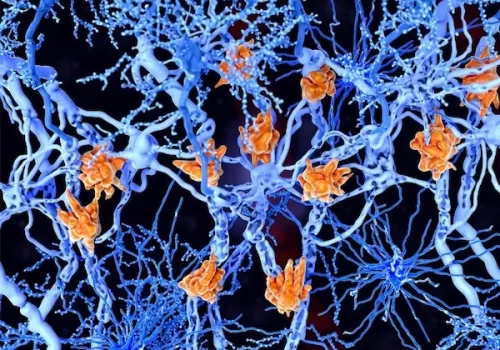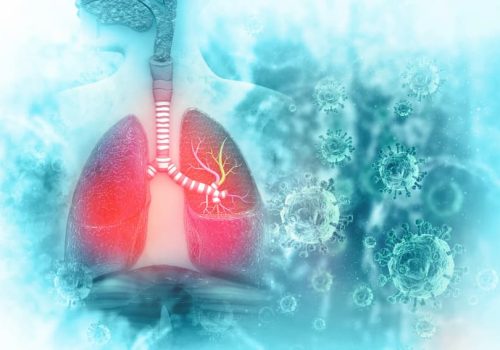January 13 marks the World Day for the Fight against Depression. A disease that requires special attention and awareness. Not only because of the impact it has on the daily lives of those who suffer from it, or because it is the world’s leading cause of disability, but also because approximately one third of patients with depression do not respond to conventional antidepressant therapy. This is a compelling fact that has boosted studies of non-pharmacological therapies in recent years, in which treatment with mesenchymal stem cells stands out.
Below, we invite you to learn about the scope of this disease and the potential of these therapies. But first, we remind you of the most important thing: depression can be prevented, treated and, of course, cured.
In the face of depression, we are all part of the solution

Depression is a mental illness that can affect anyone, caused by a combination of genetic, biological, environmental and psychological factors.
Approximately 280 million people suffer from it worldwide, with a special incidence in adults (5%) and in adults over 60 years of age (5.7%).
In Colombia, more than 2.4 million people suffer from depression, which is above the world average. The diagnosis is more common among women and young people, and its prevalence is 15.8% in adolescents, 4.7% in adults between 18 and 44 years of age, and 8.9% among adults over 45 years of age.
The suicide rate in the country increased by 15% between January and July 2023 (1,810 cases).
Contrary to what is often thought, depression does not only cause sadness. The symptoms can be very diverse:
- Anxiety, stress, frustration, fear, irritability, indecision, restlessness, restlessness
- Difficulty concentrating
- Feelings of excessive guilt or low self-esteem
- Lack of hope for the future
- Thoughts of self-harm or suicide
- Sleep disturbances
- Appetite or weight changes
- Feeling of tiredness or lack of energy
Symptoms may appear in various typologies (single-episode depressive disorder, recurrent, bipolar disorder) and degrees of intensity (mild, moderate, severe).
Society has evolved in recent years with regard to the way this disease is understood and valued. But in many cases, depression is still considered a sign of weakness. The change of mentality goes through the opposite: to understand it as a sign of struggle and overcoming. In fact, in the words of psychologist Paulo Daniel Acero Rodríguez (founder of Experiencia Crisálida): “Asking for help is not a sign of weakness, but of strength“.
Far from turning this article into a monograph on depression (for which there are specialized care centers and resources, such as line 192 option 4), we do want all this data to contextualize the seriousness of the disease as a global health problem and, therefore, the need to find more and better treatments.
What has been achieved so far?
A problem that requires more than antidepressants
Pharmacological treatment for depression has been available since 1957, when Imipramine, a tricyclic antidepressant, and Iproniazid, a monoamine oxidase inhibitor, were launched. In more than six decades, countless drugs have been launched commercially, improving the tolerability and safety of antidepressant treatment.
However, with few exceptions, the intended mechanism of these drugs was to increase the availability of serotonin, noradrenaline and dopamine. As we mentioned at the beginning of this article, after enormous efforts to improve the pharmacological treatment of depression, one third of patients still do not respond to conventional antidepressants. It is therefore essential to develop innovative therapeutic strategies based on the pathophysiological aspects of depression.

In this regard, in recent years several lines of evidence suggest that chronic inflammatory states may be related to the etiopathogenesis of depression. This evidence opened the way for researchers to develop new anti-inflammatory therapies that could alleviate the symptoms and progression of depression, such as stem cell therapy.
The anti-inflammatory and neurodegenerative properties of stem cells could treat the pathogenic state that maintains depression.
Stem cell therapy joins the fight against cancer
Stem cell therapies have become a standard for the treatment of both subacute and chronic inflammatory processes and neurological disorders.
Research has suggested the potential use of adult stem cell therapy to treat a number of neurological conditions. Conditions that have received special attention in this blog, such as multiple sclerosis and multiple sclerosisautoimmune encephalomyelitis, Alzheimer’s disease and other dementia conditions such as Parkinson’s disease and epilepsy.
Most studies highlight the immunomodulatory character of adult stem cells and their therapeutic efficacy related to neurological diseases, particularly by triggering anti-inflammatory states.

For example, the seizure activity of epilepsy can induce proinflammatory molecules, which affects seizure severity and frequency. Transplantation of bone marrow mononuclear cells (BMMC) or human cord blood mononuclear cells in experimental models of epilepsy induced significant improvements in neurological function.
After a seizure, brain injury induces a highly regulated cascade of biological events, characterized by the release of cytokines, chemokines and protectins into the neuronal microenvironment.
These biological reactions were attenuated by adult stem cell transplantation. Inflammatory states decreased and tissue repair was promoted through cell-cell interactions and paracrine effects. In addition, some evidence showed that adult stem cells stimulate angiogenesis and endothelial repair through paracrine actions.
In Alzheimer’s disease, MSCs have been shown to reduce serum IL-1, IL-2, TNFa and inerferon-y (IFN-γ) cytokines and oxidative stress, which showed an anti-inflammatory effect.
Among the most relevant mechanisms of action of stem cells is the release of extracellular vesicles carrying soluble factors, microRNAs and organelles.
Initially, the release of extracellular vesicles was thought to represent a clearance mechanism by which cells eliminate proteins and other unwanted molecules.
Several studies have described the beneficial actions of MSCs by delivering exosomes instead of cells. Thus, MSCs or exosome transplantation could offer an efficient and safe non-pharmacological therapy to treat neurological conditions.
Millions of reasons to boost cell therapy research
The results of different experimental studies strongly support the potential therapeutic use of stem cells in the treatment of depression.
The easier it is to identify the best alternative (cells or exosomes) for antidepressant treatment, the lower the costs and the more established the routines.
At America Cell Bank, we are well aware that, although great strides have been made in cell therapy as an alternative treatment to antidepressants, the number of studies is still limited and research lines with stem cells and exosomes should be promoted in order to specify aspects such as optimal dosage, route of administration, fundamental mechanisms of action, etc.

For this reason, we are constantly strengthening our collaboration with research centers in countries in countries such as the USA and Spain. An essential activity to improve the quality of life of millions of people struggling with depression.
For more information about stem cells and the benefits of regenerative medicine, do not hesitate to contact us. contact us.
Sources:
https://www.ncbi.nlm.nih.gov/pmc/articles/PMC8474995/#
https://www.who.int/es/news-room/fact-sheets/detail/depression
https://www.paho.org/es/temas/depresion#:~:text=La20depresiC3B3n20es20una20enfermedad20que20se20caracteriza20por20una,durante20al20menos20dos%20semanas.https://sepsm.org/dia-mundial-de-la-lucha-contra-la-depresion/



















